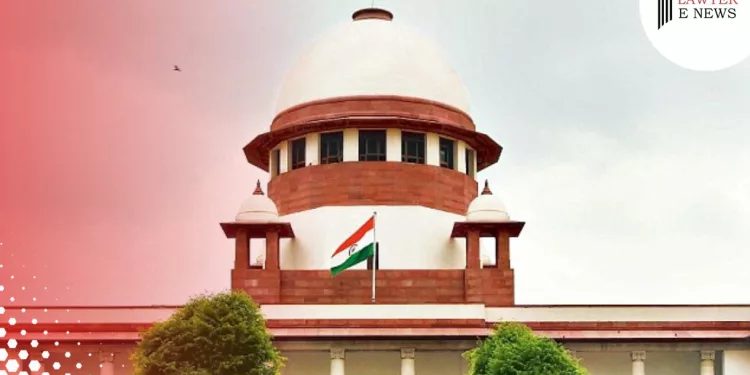Failure to Explain Circumstances Can Be a Crucial Link in Criminal Cases: Supreme Court

In a recent landmark judgment, Honorable Justice J.B. Pardiwala and Honorable Justice Prashant Kumar Mishra emphasized the significance of an accused’s failure to explain circumstances in criminal cases. The judgment, delivered on October 6, 2023, sheds light on the legal concept of “Prima Facie Case” and the application of Section 106 of the Indian Evidence Act.
The judges observed, “It is a different matter that the quantum of evidence by which he may succeed in discharging his burden of creating a reasonable belief, that circumstances absolving him from criminal liability may have existed, is lower than the burden resting upon the prosecution to establish the guilt of an accused beyond reasonable doubt.”
Section 106 of the Evidence Act, which deals with the burden of proof, was a focal point in the judgment. The judges clarified that this section does not impose a burden on the accused but allows the court to consider the accused’s failure to provide an explanation when there are facts within their special knowledge that could support a theory consistent with their innocence.
The judgment also stressed the vital role of courts in cases involving crimes against women, stating, “The role of courts in such circumstances assumes greater importance, and it is expected that the courts would deal with such cases in a more realistic manner and not allow the criminals to escape on account of procedural technicalities, perfunctory investigation or insignificant lacunas in the evidence as otherwise the criminals would receive encouragement and the victims of crime would be totally discouraged by the crime going unpunished.”
This ruling serves as a reminder of the legal principle that a failure to explain circumstances can be a crucial link in establishing guilt in criminal cases, particularly those based on circumstantial evidence. The judgment underscores the responsibility of the prosecution to prove guilt beyond reasonable doubt while allowing the court to consider the accused’s failure to provide a credible explanation when circumstances point to their involvement.
The case referred to various legal precedents, including the decision in Gurcharan Singh v. State of Punjab, and emphasized the need for a balanced approach in evaluating the evidence. While the accused is not obligated to offer an explanation, their silence or lack of a plausible alternative theory can be considered in the overall assessment of the case.
This judgment serves as a significant addition to the jurisprudence surrounding the burden of proof in criminal cases and reinforces the importance of a fair and realistic approach in the administration of justice, especially in cases involving crimes against women.
Date of Decision: 06 October 2023
BALVIR SINGH vs STATE OF UTTARAKHAND






